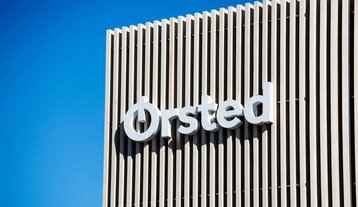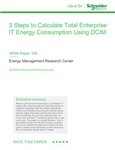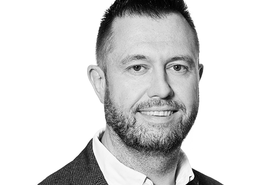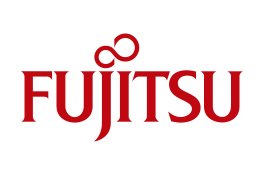Microsoft is buying one million tons of carbon removal credits from a renewable energy company in Denmark as the tech giant continues to invest in carbon capture technology.
It will make the purchase from the Avedøre power station in Copenhagen, which is operated by energy company Ørsted, in a deal that will run for 10 years from 2026.
The power plant converts locally sourced straw, which is a by-product of agriculture, into electricity. Residual biomass left over from the process will now be used in a new bioenergy carbon capture and storage project, the Ørsted Kalundborg CO2 Hub.
Expected to launch in 2026, the hub will take the waste biomass from Avedøre and another of Ørsted’s power stations, the Asnæs facility in western Zealand, and ship it to a storage reservoir in the Norwegian part of the North Sea, where it will be stored permanently.
Ørsted claims the process creates negative emissions. “By capturing the biogenic carbon from biomass-fired combined heat and power plants and storing it underground, it is possible to not only reduce, but also remove CO2 from the atmosphere, as biogenic carbon from sustainable biomass is part of a natural biogenic carbon cycle,” the company said in a statement.
Microsoft and Ørsted have been working together since 2021.
Ole Thomsen, senior vice president and head of Ørsted’s Bioenergy business, said: "This expanded collaboration with Microsoft is a testament to our shared vision for a sustainable future.
“By combining Ørsted's expertise in bioenergy carbon capture and storage with Microsoft's commitment to reducing its carbon footprint, we’re showcasing how strategic relations can accelerate the transition to a greener economy."
Microsoft funds reforestation in Panama
Microsoft has been investing in different carbon capture technologies in recent years as part of its efforts to offset the emissions of its data centers.
This week it also revealed it was purchasing 1.6 million tons of reforestation carbon credits from a project in Panama. The ARC Restaura Azuero Project (ARC) in the Azuero Peninsula of Panama will restore a “unique tropical forest”, planting over six million trees from over 75 native species in an area degraded by decades of cattle ranching.
It is expected to issue 3.24 million tons of carbon removal credits over the next 30 years, and Microsoft has purchased 1.6 million of these through a credit streaming agreement, the company’s first, and an offtake agreement. A streaming agreement sees an upfront deposit paid, with more payments throughout the life of the contract.
Microsoft’s funding will enable Ponterra, the organization planting the forest, to start work at the 10,000-hectare site. Two other buyers, Rubicon Carbon and Carbon Streaming, are also purchasing credits.
“Ponterra’s mission to restore biodiversity and uplift local communities by designing and operating high-integrity nature projects comes to life today,” said Ponterra CEO Celia Francis. “We are thrilled to be working with some of the most respected buyers of nature-based carbon credits in the market to reach the scale needed to meaningfully impact the twin biodiversity and climate crises,”
It is the third reforestation deal Microsoft has penned in the last six months. In December it revealed it was purchasing 1.5 million tons of carbon credits from another company, Mombak, as part of reforestation work in the Amazon rainforest.
Mombak said at the time that Microsoft’s backing would help it reestablish 25 forests in deforested areas of the Brazilian Amazon biome, planting 30 million trees and returning 100 million different species to the area, many of which are threatened with extinction.
Microsoft is also working with re.Green on another forestry project in Brazil. The deal will fund the restoration of more than 16,000 hectares of degraded pastureland across Brazil (over half of which has already been acquired with restoration activities underway), including in the States of Maranhão and Bahia, encompassing the planting of at least 10.7 million native seedlings.
Microsoft: big in Biochar
Elsewhere, industrial biochar producer Carbonity and carbon asset manager First Climate this week announced the signing of a forward contract with Microsoft regarding the delivery of carbon dioxide removal credits from a biochar project in Canada.
The contract is set for a volume of 36,000 tons of carbon credits to be issued and delivered within the next three years, Carbonity said.
Biochar is a stable form of carbon produced by heating biomass in the absence of oxygen. It can be produced with minimal emissions, and the biochar is then plowed back into the soil, where it will remain for thousands of years.
The addition of biochar also improves soils, by increasing drainage and allowing nutrients to flow better.
Microsoft will be purchasing its carbon credits from the Carbonity project, a joint venture between environmental services firms Suez and Airex Energy, and Groupe Rémabec, the largest private forestry operator in the province of Quebec, Canada.
The joint venture partners will begin operations at their Carbonity facility in Quebec by the end of 2024 with an expected annual production capacity starting at 10,000 tons of biochar. The biochar will be produced from forest and agricultural residues, the companies claim.
“As we move to scale carbon removals, in connection with our goal of being carbon negative by 2030, biochar stands out as a promising medium for affordable carbon removal products, durable for centuries and with co-benefits to agriculture and local communities,” said Brian Marrs, senior director for energy and carbon removal at Microsoft. “At Microsoft, we are excited when we see experienced infrastructure players like SUEZ entering the carbon removal market.”
DCD reported in March that Microsoft was buying 95,000 tons of carbon capture credits from a biochar plant in Mexico. It has also signed a biochar deal with Carbon Streaming in Virginia.







